Imagining safer, healthier spaces
Today is World Car Free Day! This annual event encourages motorists to give up their car for 24-hours. Are you giving up your car for the day?
Cities around the world are backing the initiative, which aims to imagine a world where cars are used less, reducing the hazards of congestion and air pollution.
In London, Mayor Sadiq Khan, is supporting London Play’s ‘Play Streets’ program. This sees the closure of some residential roads to vehicles from September 22-24, creating safe spaces for children to play and for people to walk and cycle.
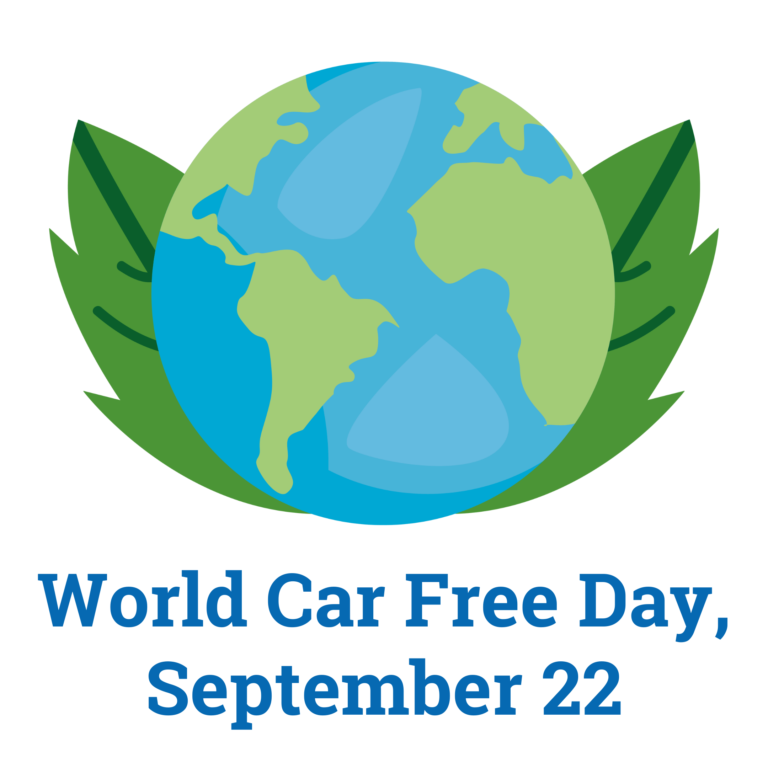
By inspiring activities like these, World Car Free Day shines a light on the benefits for the environment, communities and public health of breaking the habit of regular car use. It asks us to consider the impact of taking more trips on foot, by scooter or bike, or using public transport.
At Flowbird, our vision is for effortless multimodal mobility, where cars are used for fewer and shorter journeys, or journey legs.
Our interoperable systems enable people to park cars – but also charge them, then ride, scoot, or walk to their destination.
Most agree that the future of mobility includes car travel, albeit there’s a race to replace petrol and diesel cars with cleaner, electric vehicles. However, there’s a collective responsibility to mitigate the negative effects of regular, single occupancy car use.
Data from the National Travel Survey, England, 2022, shows that it’s only for trips under 1 mile where cars and vans are not the dominant transport mode. Two thirds (67%) of trips of between one and five miles are taken using a car or van. It’s clear that few ‘sustainable swaps’ – made by many – could be transformative.
Public transport needs patronage
Given that nearly 50% of all transport emissions (or 12% of global emissions) comes from passenger road travel, the transport sector is under pressure to decarbonise.
Many bus companies have set out on a journey towards ‘zero emissions’, among them Flowbird partner Lothian Buses, which this week announced an order for 50 new electric double deck buses for Scotland’s capital city, Edinburgh. The first of these will appear on streets in early spring 2024.
Despite this, with limited funding, progress remains slow. By October last year, in the UK, there were 1,724 ZE buses in operation out of a total fleet of 37,800.
What the industry needs is for people to vote with their feet and use public transport. More riders means more revenue to help operators rise to the ZE challenge.
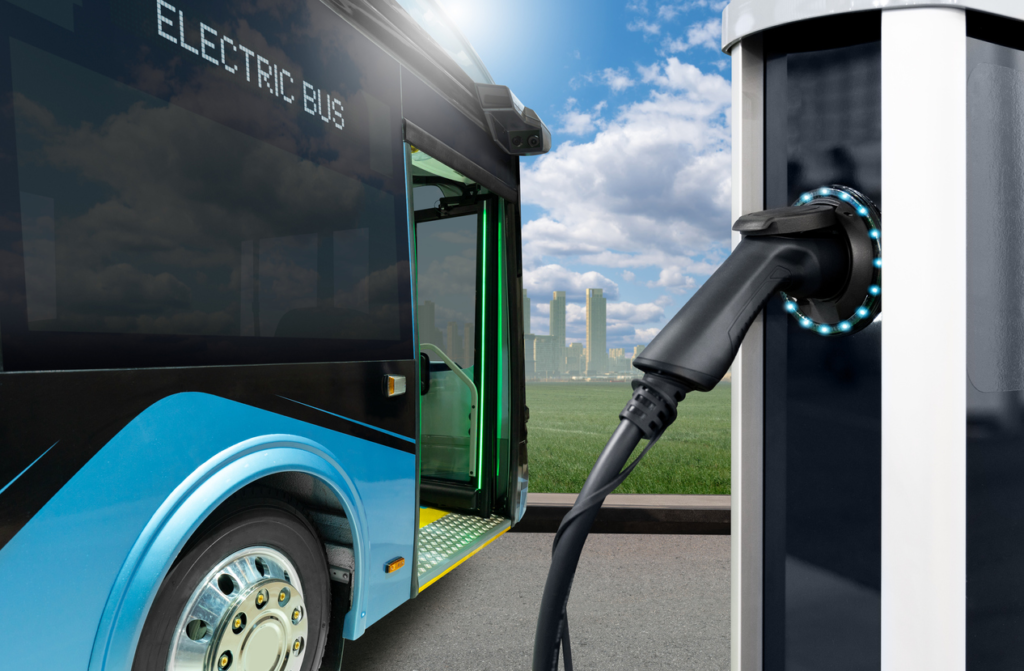
Kind to the environment and to public health
The environmental argument for using passenger transport is compelling. As an example, travelling on light rail emits around a sixth of the equivalent car journey, according to UK government figures. Taking the local bus emits just over half the greenhouse gases of a single occupancy car journey, while helping to decongest our roads.
If further motivation is needed to ride transit, the effect on health is undeniable. Less congestion, cleaner air: healthier people. Air pollution is connected to major health issues and affects the entire body. Added to which, public transport is partly ‘active’, with walks to and from bus stops and rail stations helping to burn calories and get blood pumping
Motivating sustainable travel choices
To mark World Car Free Day, we polled our LinkedIn audience, to ask them what would motivate them to use their car less.
We gave three optional answers:
- Simpler multimodal travel
- Faster public transport
- Cheaper public transport
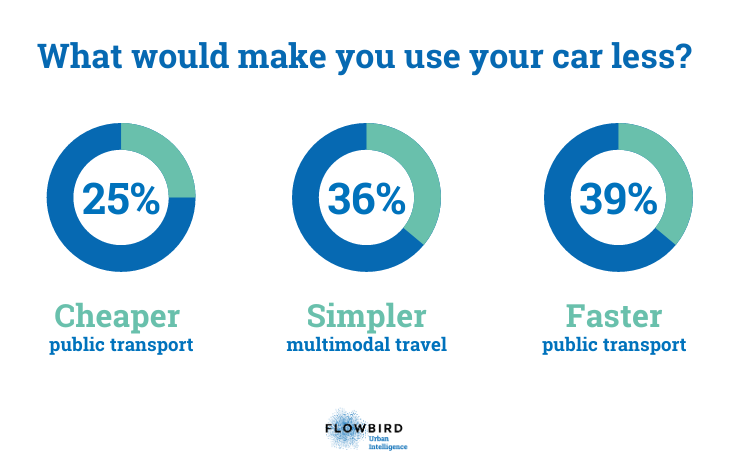
After a week, we received a clear message that incentivising car drivers to use alternative transport modes depends on all these things. Four in ten (39%) respondents said that faster public transport was the most important factor; just over one third (36%) chose simpler multimodal travel; and a quarter (25%) said cheaper public transport was key.
How can technology suppliers help?
At Flowbird, we’re committed to delivering technology that drives positive behaviour change and encourages more use of public transport. We help operators to be more efficient in their delivery of mobility services – so they can offer a faster, cheaper, connected user experience.
Some of the technical linchpins we provide for this are effective park and charge infrastructure, open loop transit payments and Mobility-as-a-Service. Our advanced solutions are already helping cities around the world to make it simple to plan, book and pay for parking, transport and mobility services. The solutions are there to give people the choice to travel sustainably without compromising on the speed and convenience of their journey.
Convenience and value are powerful incentives
What’s exciting for us at Flowbird is that we can play a part in helping authorities to incentivise sustainable travel. Through open transit payments, where fare caps and automatic concessions give transit passengers the confidence they are always paying the best value fare available. And through MaaS apps, which provide a one-stop shop for multimodal travel and city experiences, with bundle deals creating cost savings for users.
It’s clear to us that, with strong collaboration between cities, operators and technical suppliers, multimodal transport can deliver the simplicity, speed and value that users need to motivate better travel behaviour. We believe there can be a future for urban mobility that is less car-centric, more sustainable, and sits at the heart of thriving, healthy cities.

 International
International 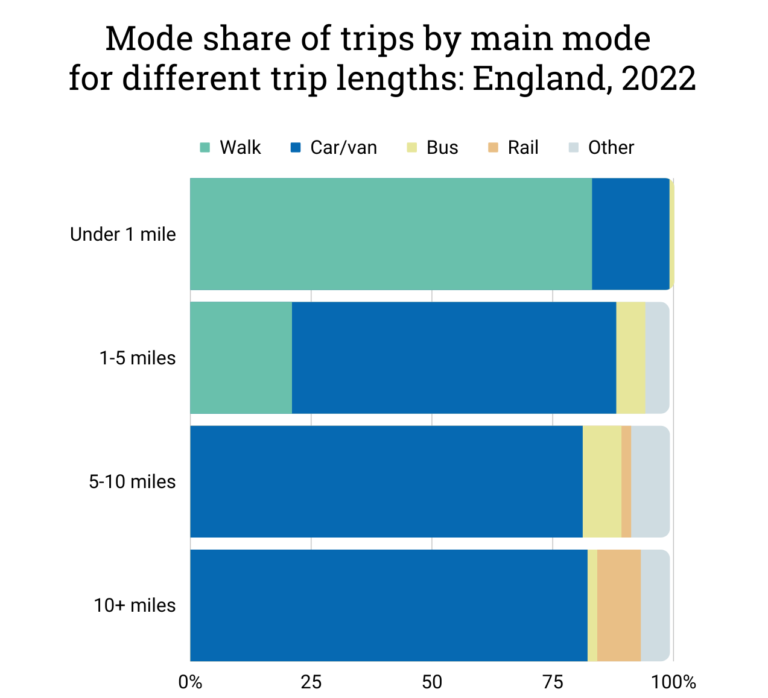
 Flowbird Systems Go Live in Madeira
Flowbird Systems Go Live in Madeira  The next poster cities for mobility
The next poster cities for mobility  What politicians and policy makers need to know about MaaS
What politicians and policy makers need to know about MaaS  MaaS start small and scale up
MaaS start small and scale up  Flowbird Pay-by-Plate Pay Stations Launch in the City of New York
Flowbird Pay-by-Plate Pay Stations Launch in the City of New York  Lyon chooses Flowbird for the implementation of its new progressive parking policy
Lyon chooses Flowbird for the implementation of its new progressive parking policy  Is MaaS an essential foundation for liveable cities?
Is MaaS an essential foundation for liveable cities? 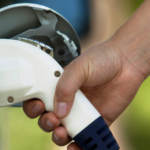 Wyre Forest District Council car parks to have electric vehicle (EV) chargers installed
Wyre Forest District Council car parks to have electric vehicle (EV) chargers installed 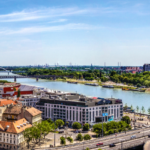 Flowbird Supplies 500 Pay and Display Parking Meters in Bratislava!
Flowbird Supplies 500 Pay and Display Parking Meters in Bratislava!  MaaS: What cities need to do to make it work
MaaS: What cities need to do to make it work 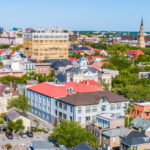 Charleston, SC Updates Its Parking System with Effortless Digital Solutions
Charleston, SC Updates Its Parking System with Effortless Digital Solutions  Clearwater, Florida Launches Pay by Text Solution – No App or Account Required
Clearwater, Florida Launches Pay by Text Solution – No App or Account Required  Carlisle, PA To Update Its Parking System with User-Friendly Solution in 2024
Carlisle, PA To Update Its Parking System with User-Friendly Solution in 2024  Open Payments Launched In Toulouse – Contactless Card Validation!
Open Payments Launched In Toulouse – Contactless Card Validation!  Flowbird and Semitan join forces to make mobility effortless!
Flowbird and Semitan join forces to make mobility effortless!  Meet the Team: David Thompson
Meet the Team: David Thompson 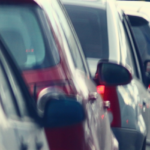 Solving traffic flow – what politicians and policymakers need to know
Solving traffic flow – what politicians and policymakers need to know 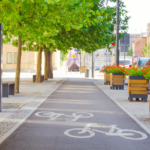 The future of the roadside curb
The future of the roadside curb 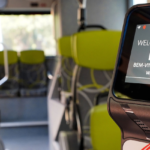 The future of the passenger experience and why effortlessness is the key
The future of the passenger experience and why effortlessness is the key  A guide to your city’s passengers: What you need to know
A guide to your city’s passengers: What you need to know  The 4 roadblocks in your city’s e-mobility plan
The 4 roadblocks in your city’s e-mobility plan 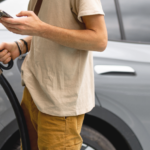 The road to zero-emissions cities (and, the parking when we get there)
The road to zero-emissions cities (and, the parking when we get there)  Why wait to decarbonise our regions?
Why wait to decarbonise our regions? 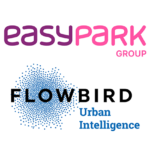 Flowbird Group takes a step forward in reshaping mobility through a strategic acquisition by EasyPark Group
Flowbird Group takes a step forward in reshaping mobility through a strategic acquisition by EasyPark Group  Park&Charge: Meet our expert
Park&Charge: Meet our expert 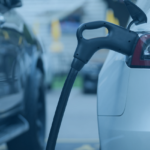 Flowbird gives cities a fast-track to e-mobility readiness
Flowbird gives cities a fast-track to e-mobility readiness 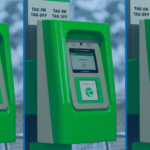 Coming soon to Perth: ‘tap to ride’ with your bank card or device
Coming soon to Perth: ‘tap to ride’ with your bank card or device  What’s next after open-loop transit payments?
What’s next after open-loop transit payments?  What would motivate you to use your car less?
What would motivate you to use your car less? 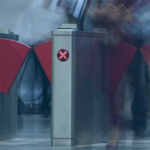 How to Boost the Efficiency of Fare Collection
How to Boost the Efficiency of Fare Collection  Lothian Buses new record: 100,000 taps in a day!
Lothian Buses new record: 100,000 taps in a day!  Smart Transport Ticketing: Benefits for Operators and Passengers
Smart Transport Ticketing: Benefits for Operators and Passengers 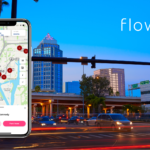 Flowbird App Empowers Tampa’s Parking Experience with Multi-App Integration
Flowbird App Empowers Tampa’s Parking Experience with Multi-App Integration  Meet the team: Justin Pounder
Meet the team: Justin Pounder 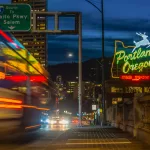 Flowbird, Umojo Partner for Off-Street Solution in Portand
Flowbird, Umojo Partner for Off-Street Solution in Portand  Cash versus digital payments in mobility systems
Cash versus digital payments in mobility systems  Flowbird teams up with Zuora to advance digitalisation and growth
Flowbird teams up with Zuora to advance digitalisation and growth  Flowbird app & Pay by Text now available in Sewickley!
Flowbird app & Pay by Text now available in Sewickley!  FabMob and Flowbird lead the way for accessible, sustainable mobility
FabMob and Flowbird lead the way for accessible, sustainable mobility  Passenger apps: Take 5 operator benefits
Passenger apps: Take 5 operator benefits 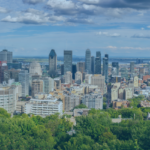 Contactless Interac Debit fare payments launch on Laval buses
Contactless Interac Debit fare payments launch on Laval buses  Edinburgh tramline extended to provide a route across the city
Edinburgh tramline extended to provide a route across the city  Take 5… Transport authority benefits of Account Based Ticketing
Take 5… Transport authority benefits of Account Based Ticketing  Parkex | Birmingham | 2023
Parkex | Birmingham | 2023  Flowbird Partners with the City of Minneapolis to Launch New & Improved MPLS Parking App
Flowbird Partners with the City of Minneapolis to Launch New & Improved MPLS Parking App 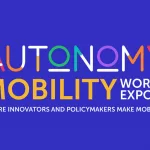 Flowbird presents its vision for connected urban mobility at AMWE in Paris
Flowbird presents its vision for connected urban mobility at AMWE in Paris 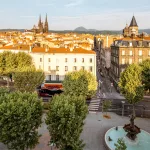 Clermont Ferrand makes the move to open payments on transport
Clermont Ferrand makes the move to open payments on transport 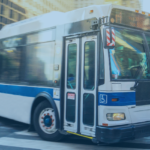 Flowbird’s transport talking points at Transport Ticketing Global
Flowbird’s transport talking points at Transport Ticketing Global 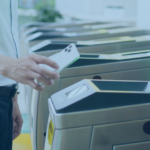 Take 5… Operator benefits of open payments in transport
Take 5… Operator benefits of open payments in transport 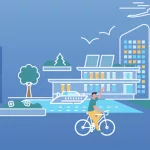 Flowbird envisions the transport ticket of tomorrow
Flowbird envisions the transport ticket of tomorrow 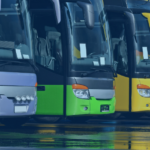 Ticketing & payments – a vital enabler of National Bus Strategy
Ticketing & payments – a vital enabler of National Bus Strategy  Flowbird announce new additions to the management team further to accelerate growth ambitions within the UK parking sector
Flowbird announce new additions to the management team further to accelerate growth ambitions within the UK parking sector  New London Brings Additional Convenience Parkers with Flowbird App
New London Brings Additional Convenience Parkers with Flowbird App  Podcast: Will transport payments drive a MaaS revolution?
Podcast: Will transport payments drive a MaaS revolution?  Take 5… Passenger benefits of open payments on transport
Take 5… Passenger benefits of open payments on transport 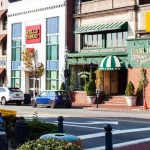 South Orange Parking Authority Updates Its Parking System with User-Friendly Solution
South Orange Parking Authority Updates Its Parking System with User-Friendly Solution 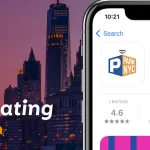 New ParkNYC App Proves to be Unrivaled Success in First 30 Days
New ParkNYC App Proves to be Unrivaled Success in First 30 Days 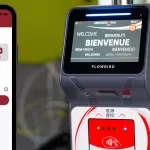 Monapass – One App, One Account, for Open Ticket Mobility
Monapass – One App, One Account, for Open Ticket Mobility  Translink Milestone for National Account Based Ticketing System for Northern Ireland
Translink Milestone for National Account Based Ticketing System for Northern Ireland  Flowbird Announces New CEO
Flowbird Announces New CEO 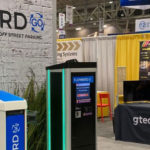 Flowbird unveils Off-Street Solution at IPMI 2022
Flowbird unveils Off-Street Solution at IPMI 2022  Flowbird is featured in the “Ticketing in Mobility as a Service” handbook published by UITP & STA
Flowbird is featured in the “Ticketing in Mobility as a Service” handbook published by UITP & STA  Flowbird Group acquires Your Parking Space
Flowbird Group acquires Your Parking Space  Transport Ticketing Global | London | 2022
Transport Ticketing Global | London | 2022 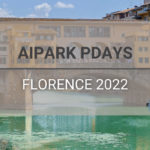 AIPARK Pdays | Florence | 2022
AIPARK Pdays | Florence | 2022 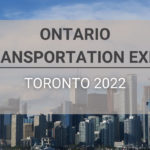 Ontario Transportation Expo | Toronto | 2022
Ontario Transportation Expo | Toronto | 2022 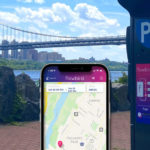 Flowbird Implements Automated Parking System To Palisades Interstate Parks
Flowbird Implements Automated Parking System To Palisades Interstate Parks  Smart City Forum | Warsaw | 2022
Smart City Forum | Warsaw | 2022  Birmingham Jefferson County Transit Authority Partners with Flowbird
Birmingham Jefferson County Transit Authority Partners with Flowbird 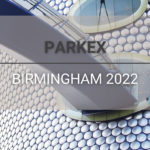 PARKEX | Birmingham | 2022
PARKEX | Birmingham | 2022 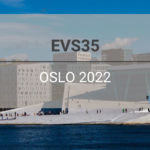 EVS35 | Oslo | 2022
EVS35 | Oslo | 2022  European Mobility Expo | Paris | 2022
European Mobility Expo | Paris | 2022 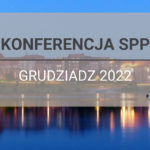 Konferencja SPP | Grudziądz | 2022
Konferencja SPP | Grudziądz | 2022  Svepark Conference | Gävle | 2022
Svepark Conference | Gävle | 2022 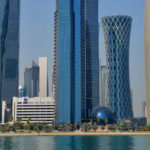 Milipol Qatar 2022
Milipol Qatar 2022 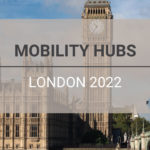 Mobility Hubs | London | 2022
Mobility Hubs | London | 2022 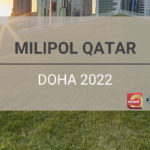 MILIPOL Qatar | Doha | 2022
MILIPOL Qatar | Doha | 2022 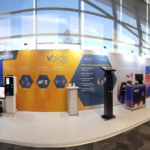 A look back at the PACE 2022
A look back at the PACE 2022  Thank you for visiting us at Intertraffic Amsterdam
Thank you for visiting us at Intertraffic Amsterdam 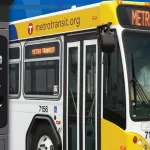 Flowbird Group to Expand Off-Board Fare Payments for Metro Transit
Flowbird Group to Expand Off-Board Fare Payments for Metro Transit 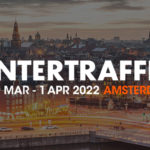 Intertraffic | Amsterdam | 2022
Intertraffic | Amsterdam | 2022 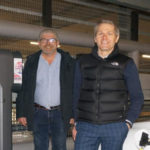 Flowbird completes first ever local authority Electric Vehicle charge point project for Wokingham Borough Council
Flowbird completes first ever local authority Electric Vehicle charge point project for Wokingham Borough Council  Podcast: the rise of open payments in transport
Podcast: the rise of open payments in transport 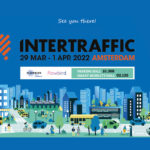 See you soon at Intertraffic Amsterdam 2022!
See you soon at Intertraffic Amsterdam 2022!  Flowbird is excited to share with you the latest news about Hong Kong!
Flowbird is excited to share with you the latest news about Hong Kong! 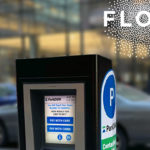 City of Des Moines upgrades to smart multi-space technology with Flowbird Group
City of Des Moines upgrades to smart multi-space technology with Flowbird Group 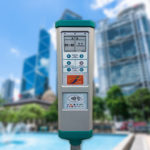 Flowbird trusted by HKT for their Smart City program
Flowbird trusted by HKT for their Smart City program 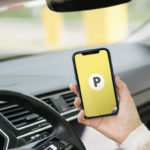 Flowbird announces a licensing agreement with Concar
Flowbird announces a licensing agreement with Concar 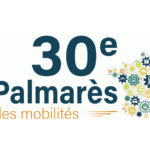 Mobility Awards City Rail & Transport
Mobility Awards City Rail & Transport 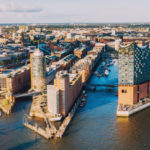 A great strategic win in Hamburg
A great strategic win in Hamburg 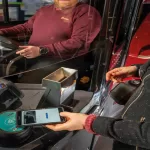 Lothian Adopts Weekly Capping with Support from Flowbird
Lothian Adopts Weekly Capping with Support from Flowbird 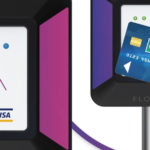 Tisséo, Flowbird and CIC deploy Open Payment in Toulouse
Tisséo, Flowbird and CIC deploy Open Payment in Toulouse 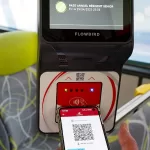 International Spotlight falls on MaaS in Monaco
International Spotlight falls on MaaS in Monaco 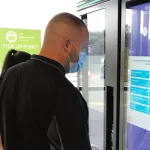 Northern Completes Major UK On-Station Rail Retailing Rollout
Northern Completes Major UK On-Station Rail Retailing Rollout  Flowbird Transforms Urban Mobility in Monaco
Flowbird Transforms Urban Mobility in Monaco 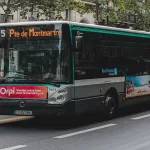 Conduent Transportation and Flowbird Selected to Equip Paris Ile-de-France Mobilités’ Buses and Trams with Next-Generation Onboard Ticketing Platform
Conduent Transportation and Flowbird Selected to Equip Paris Ile-de-France Mobilités’ Buses and Trams with Next-Generation Onboard Ticketing Platform  Flowbird’s Open Payments Expertise Wins Innovation Award
Flowbird’s Open Payments Expertise Wins Innovation Award  STL teams up with Flowbird and other new business partners to deliver a Québec First ― Next-generation credit card payment solution on all Laval buses
STL teams up with Flowbird and other new business partners to deliver a Québec First ― Next-generation credit card payment solution on all Laval buses 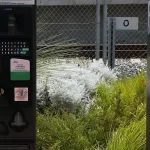 Flowbird Extends Ticketless Parking Across Transperth SmartRider Network
Flowbird Extends Ticketless Parking Across Transperth SmartRider Network 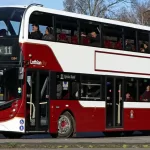 One million ‘taps’…and counting
One million ‘taps’…and counting 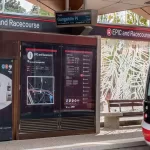 Canberra Launches Smart City Light Rail Network with Flowbird Technology
Canberra Launches Smart City Light Rail Network with Flowbird Technology  Flowbird Releases Mobile Ticketing App – ‘Loop Trolley’ App is Now Live in St. Louis, Missouri
Flowbird Releases Mobile Ticketing App – ‘Loop Trolley’ App is Now Live in St. Louis, Missouri 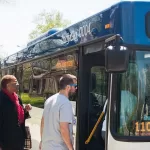 IndyGo Partners with Flowbird to Modernise Fare Collection System
IndyGo Partners with Flowbird to Modernise Fare Collection System 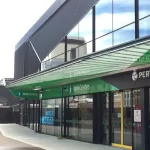 Transperth Extends Partnership with Flowbird Transport Intelligence
Transperth Extends Partnership with Flowbird Transport Intelligence 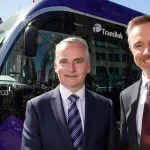 World-class ticketing system glides into Belfast
World-class ticketing system glides into Belfast 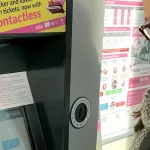 Edinburgh Trams Taps into Contactless Benefits
Edinburgh Trams Taps into Contactless Benefits 